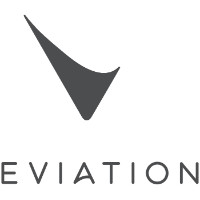
The Israeli company Eviation Aircraft Ltd which is a start-up for electric airplanes intends to be flying passengers on board its 9-seat commuter aircraft by the year 2021. This was announced by the company’s chief executive on Thursday after the company signed a deal for for the batteries that it would require with South Korea’s Kokam.
The aims of the star-up behind the development of its electric powered aircraft is to be less noisy compared to the conventionally fossil fueled aircrafts and there by emit less emissions and expend less in energy and operating costs. The company is backed by a venture capital firm and is among a number of companies attempting to develop small but all-electric passenger carrying aircraft.
The possibility of development of electric and hybrid aircraft technology is also being looked into by companies like Airbus SE, Boeing Co and Uber Technologies Inc.
Batteries that were specifically designed to meet the specific needs of Eviation would be prepared easily by Koka because the South Korean company is a small one and that is one of the reasons that it was chosen as the battery supplier, said Eviation CEO Omer Bar-Yohay.
“If I would go today to Samsung or Panasonic or LG Chem or Tesla for that matter and say I need a different cell size, they will probably laugh because the number of cells we are going to buy is not significant enough to start the design process,” he told the media.
At 3.8 tonnes, the total weight of the battery cells account for about 60 per cent of the maximum takeoff weight of the aircraft and the 9,400 battery cells would be fitted throughout the aircraft including the ceiling, the floor and the wings of the craft.
It is more likely that smaller carrier planes would be the ones that would be electrified much before the large commercial jets because this aspect is completely dependent on the enhancement in the technology of batteries.
Compared to jet fuel, less energy per kilogram is stored in batteries and hence they are heavier when equal power is considered. However, there is an improvement in the ratio every year and this has allowed longer distances to be travelled by electric cars and electric planes than previously possible.
A conventional Cessna Caravan that as a size similar to the Eviation’s “Alice” airplane has flying range of 1000 nautical miles and in comparison, the “Alice” has flying range of a maximum of just 650 nautical miles or 1200 kilometers. Bar-Yohay said that while the costs of the “Alice” would be the same as the Cassna at $2 million-plus, the costs of fuel and maintenance would be much lower in comparison.
He said that it would be around the end of the year that the first demonstration of flight of Alice would be done while the company hopes to launch and display the aircraft at the Paris Airshow in the middle of 2019. Following that, about $100 million would be required for the commercial manufacture of the aircraft.
(Source:www.reuters.com)
The aims of the star-up behind the development of its electric powered aircraft is to be less noisy compared to the conventionally fossil fueled aircrafts and there by emit less emissions and expend less in energy and operating costs. The company is backed by a venture capital firm and is among a number of companies attempting to develop small but all-electric passenger carrying aircraft.
The possibility of development of electric and hybrid aircraft technology is also being looked into by companies like Airbus SE, Boeing Co and Uber Technologies Inc.
Batteries that were specifically designed to meet the specific needs of Eviation would be prepared easily by Koka because the South Korean company is a small one and that is one of the reasons that it was chosen as the battery supplier, said Eviation CEO Omer Bar-Yohay.
“If I would go today to Samsung or Panasonic or LG Chem or Tesla for that matter and say I need a different cell size, they will probably laugh because the number of cells we are going to buy is not significant enough to start the design process,” he told the media.
At 3.8 tonnes, the total weight of the battery cells account for about 60 per cent of the maximum takeoff weight of the aircraft and the 9,400 battery cells would be fitted throughout the aircraft including the ceiling, the floor and the wings of the craft.
It is more likely that smaller carrier planes would be the ones that would be electrified much before the large commercial jets because this aspect is completely dependent on the enhancement in the technology of batteries.
Compared to jet fuel, less energy per kilogram is stored in batteries and hence they are heavier when equal power is considered. However, there is an improvement in the ratio every year and this has allowed longer distances to be travelled by electric cars and electric planes than previously possible.
A conventional Cessna Caravan that as a size similar to the Eviation’s “Alice” airplane has flying range of 1000 nautical miles and in comparison, the “Alice” has flying range of a maximum of just 650 nautical miles or 1200 kilometers. Bar-Yohay said that while the costs of the “Alice” would be the same as the Cassna at $2 million-plus, the costs of fuel and maintenance would be much lower in comparison.
He said that it would be around the end of the year that the first demonstration of flight of Alice would be done while the company hopes to launch and display the aircraft at the Paris Airshow in the middle of 2019. Following that, about $100 million would be required for the commercial manufacture of the aircraft.
(Source:www.reuters.com)














